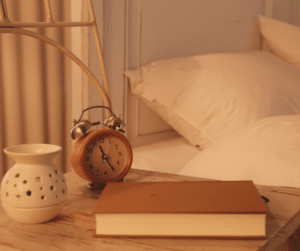How to Improve Sleep Hygiene for Aging Adults

Sleep is an essential pillar of health and well-being, yet its importance may be unrecognized, especially as we age. For older adults, understanding the role of sleep in their overall health and longevity is critical. Did you know that, according to the National Institute on Aging, insomnia is the most common sleep problem in people who are 60 years of age and older?
Facts like this emphasize that maintaining good sleep hygiene can dramatically improve sleep quality, promoting both mental and physical health. This post explains information about sleep hygiene with actionable steps to help improve sleep. In addition, it highlights the benefits of restorative sleep for aging adults.
About Sleep and Getting Older
As we age, sleep patterns change. The National Institute on Aging explains that older adults often experience less deep sleep, increased nighttime awakenings, and shifts in their circadian rhythms. While these changes are considered normal, sleep disturbances can have negative effects, including reduced cognitive function, weakened immune system, and increased risk of chronic conditions such as heart disease and diabetes.
Information about sleep highlights that restorative sleep helps the brain process memories, supports emotional regulation, repairs bodily tissues, and bolsters immune defenses. For seniors, quality sleep is especially vital, as it can help mitigate age-related decline and contribute to a longer, healthier life.
Understanding Sleep Hygiene
Sleep hygiene refers to a set of practices and habits that create an optimal environment for sleep. Poor sleep hygiene, such as inconsistent sleep schedules or excessive screen time before bed, can disrupt the sleep cycle and lead to insomnia or restless nights. By implementing good sleep hygiene, seniors and baby boomers can improve their sleep quality, which in turn may help enhance their health and overall quality of life.
Five Tips for Better Sleep Hygiene
An article from the Harvard Medical School highlights some ways to improve sleep hygiene and take steps to establish consistent good sleep.
 Create a Consistent Sleep Schedule Going to bed and waking up at the same time every day helps regulate your internal clock. This consistency reinforces the body’s natural sleep-wake cycle, making it easier to fall asleep and stay asleep.
Create a Consistent Sleep Schedule Going to bed and waking up at the same time every day helps regulate your internal clock. This consistency reinforces the body’s natural sleep-wake cycle, making it easier to fall asleep and stay asleep.- Optimize Your Sleep Environment A cool, dark, and quiet bedroom can make a big difference in the quality of your sleep. Consider investing in blackout curtains, a white noise machine, or a comfortable mattress and pillows suited to your sleep style.
- Avoid Stimulants Before Bedtime Reduce consumption of caffeine and nicotine in the late afternoon and evening, as these substances can disrupt your ability to fall asleep. Instead, opt for calming herbal teas like chamomile.
- Limit Screen Time in the Evening The blue light emitted by phones, tablets, and TVs can interfere with your body’s melatonin production, making it harder to feel sleepy. Aim to unplug at least an hour before bedtime and consider activities like reading or listening to soothing music.
- Develop a Relaxing Bedtime Routine Activities such as gentle stretching, meditation, or warm baths can signal your body that it’s time to wind down. Creating a pre-sleep ritual helps transition your mind from the busyness of the day to a restful state.
Benefits of Better Sleep for Longevity
Quality sleep can have an important effect on overall health and, therefore, on longevity. The Sleep Foundation outlines a number of benefits that seniors and baby boomers may be able to take advantage of through improved sleep:
Enhanced Cognitive Function: Sleep helps the brain consolidate memories, process information, and maintain focus, reducing the risk of cognitive decline.
Better Emotional Health: Restorative sleep reduces stress and anxiety, fostering emotional resilience.
Physical Vitality: Sleep allows the body to repair cells, balance hormones, and strengthen the immune system, promoting physical health and vitality.
Prioritize Sleep Hygiene in Your Life
Sleep hygiene is more than just a buzzword; it’s a transformative approach to health and longevity for seniors and baby boomers.
By prioritizing sleep hygiene, older adults can take better control of their sleep patterns, help enhance their well-being and enjoy the restorative power of sleep. Quality sleep is not only a cornerstone of health but also a key to longevity. It’s never too late to start building habits that support better sleep—your sleepy self will thank you.
If you are a Friends Life Care member and have challenges with sleep, reach out to your Care Coordinator. And if you are not yet a member, learn more with a free consultation with a Friends Life Care Plan Counselor.
Images from Canva
Leave a Comment
